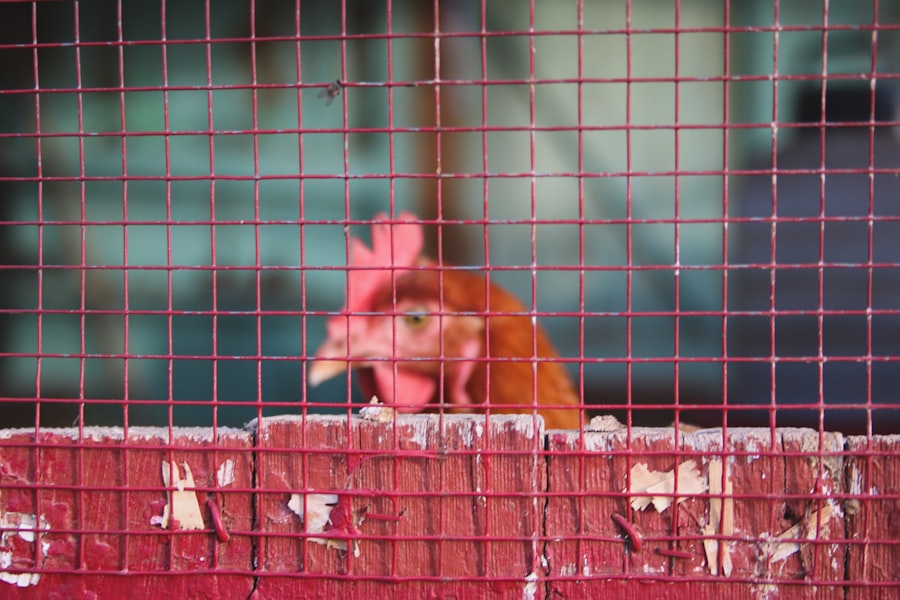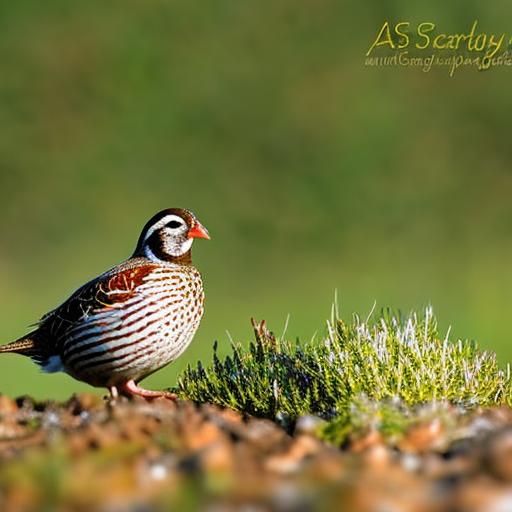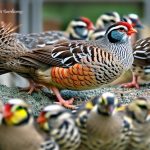Quail are sensitive birds that can easily become stressed by loud noises and disturbances. It is crucial to keep quail in a quiet environment to ensure their well-being and productivity. When quail are exposed to loud noises, they can become agitated, which can lead to a decrease in egg production and even health issues. Additionally, loud noises can cause quail to become skittish and fearful, which can impact their overall behavior and quality of life. Therefore, it is essential for quail owners to understand the importance of keeping their birds in a quiet and peaceful environment.
Furthermore, quail are known for their ability to hear high-frequency sounds, which makes them particularly sensitive to noise. This means that even seemingly minor disturbances, such as loud conversations or sudden movements, can have a significant impact on quail. In order to ensure the well-being of quail, it is important for owners to create a calm and quiet environment for their birds. By understanding the impact of noise on quail and the importance of keeping them in a quiet environment, owners can take the necessary steps to minimize disturbances and ensure the health and happiness of their birds.
Key Takeaways
- Keeping quail quiet is important for their health and well-being
- Creating a calm environment includes providing adequate space and shelter
- Minimizing noise and disturbances can be achieved through careful planning and management
- Soundproofing techniques such as using insulation and barriers can help reduce noise
- Quiet handling and care practices are essential for maintaining a peaceful environment for quail
Creating a Calm Environment for Quail
Creating a calm environment for quail is essential for their well-being and productivity. One of the first steps in creating a calm environment for quail is to provide them with a spacious and well-designed living space. This includes ensuring that their enclosure is large enough to allow for natural behaviors such as dust bathing and foraging, as well as providing adequate shelter and nesting areas. Additionally, it is important to provide quail with a comfortable and clean living environment, as this can help reduce stress and promote overall well-being.
Another important aspect of creating a calm environment for quail is to provide them with appropriate lighting. Quail are sensitive to light, so it is important to ensure that their living space is well-lit but not overly bright. Natural light is ideal, but if this is not possible, artificial lighting can be used to create a suitable environment for the birds. Additionally, it is important to maintain a consistent light cycle for quail, as sudden changes in lighting can cause stress and disrupt their natural behaviors.
Minimizing Noise and Disturbances
Minimizing noise and disturbances is crucial for maintaining a quiet environment for quail. This includes taking steps to reduce loud noises in the vicinity of the quail enclosure, such as avoiding loud conversations or sudden movements around the birds. Additionally, it is important to keep other animals away from the quail enclosure, as the presence of predators or other animals can cause stress and anxiety for the birds.
Furthermore, it is important to consider the location of the quail enclosure when minimizing noise and disturbances. Placing the enclosure in a quiet area away from high-traffic areas or noisy machinery can help reduce the impact of external noise on the birds. Additionally, providing a barrier such as hedges or fencing around the enclosure can help further reduce noise and disturbances.
Using Soundproofing Techniques
Soundproofing techniques can be used to further minimize noise and disturbances in the quail enclosure. This can include using materials such as insulation or sound-absorbing panels to reduce the transmission of external noise into the enclosure. Additionally, using thick curtains or blankets on the walls of the enclosure can help absorb sound and create a quieter environment for the birds.
Another soundproofing technique that can be used is to provide a sound barrier around the quail enclosure. This can include using natural barriers such as trees or shrubs to help block out external noise, as well as constructing a solid fence or wall around the enclosure to further reduce the impact of noise on the birds.
Implementing Quiet Handling and Care Practices
In addition to creating a quiet environment for quail, it is important to implement quiet handling and care practices when interacting with the birds. This includes avoiding sudden movements or loud noises when entering the quail enclosure, as well as speaking softly and calmly around the birds. Additionally, it is important to handle quail gently and with care, as rough handling can cause stress and anxiety for the birds.
Furthermore, it is important to minimize disturbances during routine care activities such as feeding and cleaning. This includes taking steps to reduce noise and disturbances during these activities, such as using quiet equipment and avoiding sudden movements around the birds. By implementing quiet handling and care practices, owners can help reduce stress and anxiety for their quail and promote a calm and peaceful environment for the birds.
Considering the Impact of Noise on Quail Health and Behavior

The impact of noise on quail health and behavior should not be underestimated. Loud noises and disturbances can cause stress and anxiety for quail, which can lead to a range of health issues including decreased egg production, reduced immune function, and even increased mortality rates. Additionally, noise can have a significant impact on quail behavior, causing them to become skittish, fearful, or aggressive.
Furthermore, exposure to loud noises over an extended period of time can have long-term effects on quail health and well-being. Chronic stress caused by noise can lead to a range of health issues including decreased reproductive success, impaired growth and development, and increased susceptibility to disease. Therefore, it is essential for quail owners to consider the impact of noise on their birds and take steps to minimize disturbances in order to ensure their health and happiness.
Maintaining a Quiet and Peaceful Environment for Quail
In conclusion, maintaining a quiet and peaceful environment for quail is essential for their well-being and productivity. By understanding the importance of keeping quail in a quiet environment, creating a calm living space for the birds, minimizing noise and disturbances, using soundproofing techniques, implementing quiet handling and care practices, and considering the impact of noise on quail health and behavior, owners can ensure the health and happiness of their birds. It is crucial for quail owners to take proactive steps to minimize noise and disturbances in order to create a quiet and peaceful environment for their birds. By doing so, owners can promote the well-being of their quail and ensure that they are able to thrive in their living environment.
If you’re interested in learning more about raising quail, you might also want to check out this informative article on the best chicken coop designs for your backyard flock. The article provides valuable insights into creating a comfortable and secure living space for your chickens, ensuring their well-being and productivity. You can read it here.
FAQs
What are the benefits of keeping quail?
Quail are a great source of lean protein and their eggs are considered a delicacy. They are also relatively easy to care for and require less space compared to other poultry.
What do quail eat?
Quail are omnivores and their diet consists of a variety of seeds, grains, insects, and small invertebrates. They can also be fed commercial quail feed.
How much space do quail need?
Quail require about 1 square foot of space per bird in a coop or cage. They also need access to an outdoor area for foraging.
What are the housing requirements for quail?
Quail housing should provide protection from predators and the elements. It should also have good ventilation and be easy to clean. Nesting boxes and perches are also important for quail to feel comfortable.
How do you care for quail chicks?
Quail chicks need a warm and draft-free environment, as well as access to chick starter feed and clean water. They also need to be protected from predators and monitored closely for any health issues.
Are there any legal restrictions on keeping quail?
Laws and regulations regarding the keeping of quail vary by location, so it’s important to check with local authorities before starting a quail-keeping operation.
Meet Walter, the feathered-friend fanatic of Florida! Nestled in the sunshine state, Walter struts through life with his feathered companions, clucking his way to happiness. With a coop that’s fancier than a five-star hotel, he’s the Don Juan of the chicken world. When he’s not teaching his hens to do the cha-cha, you’ll find him in a heated debate with his prized rooster, Sir Clucks-a-Lot. Walter’s poultry passion is no yolk; he’s the sunny-side-up guy you never knew you needed in your flock of friends!







